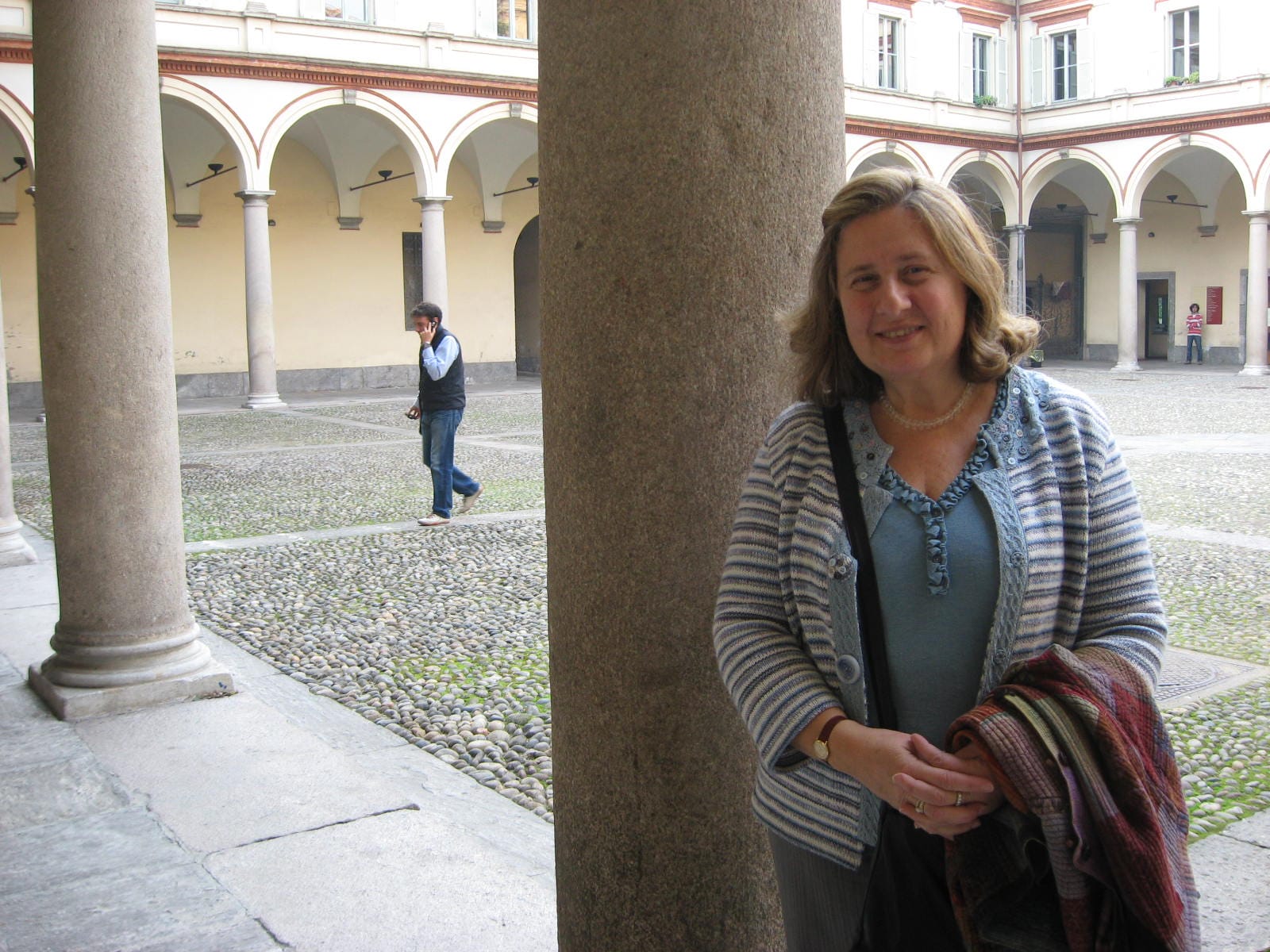Elisabetta Brusa's Requiem & Stabat Mater
Elisabetta Brusa has a powerful compositional voice, and her music is served with the fervent advocacy of the Hungarian forces

Born in 1954, Elisabetta Brusa studied in Milan before relocating (after winning first prize at the Washington International Competition for Composers for her String Quartet in 1982) to England on a Fulbright Scholarship to study with two greats, the composer Sir Peter Maxwell Davies and the musicologist Hans Keller. Later, via the US-Italy Fulbight Commission, she attended classes at Tanglewood. The Macdowell Colony afforded her space to concentrate solely on composition from 1988 to 1990; from 1985 to 2018, she was professor of composition and orchestration at the Milan Consevatory.

Brusa has expressed a life-long yearning to write a Requiem:
I've always wanted to compose a Requiem, which is why I first wrote a Stabat Mater. But I knew I had not loved enough and did not have the spiritual, aesthetically and life experiences to be able to compose a mature Requiem. Through life one changes, the motivations that inspire your music change, many questions about the afterlife spring up and it is difficult to be sire whether one is a Believer or not. Empathy and sensitivity force you to tolerate your physical and psychological suffering and extend them to all people. My requiem isddicated to my parents.
Brusa's music is tonally based, but not insipid. The “Christe” of her “Kyrie” has real mettle; worth noting the accuracy of the Hungarian radio Choir's sopranos, too, in what is obviously demanding writing:
.. while the pot-Orff “Dies irae” has plenty of punch. The surprise comes with the emotionally laden setting of the “Tubea mirum”: Dorotttya Láng is the stunning alto, a singer I would love to hear more from. No surprise to learn that the roles of Waltraute (Götterdämmerung) and Judit (Bartók Bluebeard's Castle) are in her repertoire:

Brusa sculpts the “Recordare” well (testing those sopranos once more!), and the orchestra as well as choir are on their most tender form:
Marcell Bakonyi is a solid bass soloist in the “Ingemisco”; soprano Réka Kristóf's gleaming soprano crowns a very laden chorus and orchestra in the “Lacrymosa” (it probably tells you much about her voice that although I am sure her Countess Nozze di Figaro at Wuppertal last year was lovely, it is there performance as Viclinda (I Lombardi) at MUPA Budapest, also last year, that I would have loved to experience on stage; instead, we have covered her in the role here on Classical Explorer in the recoding by BR Klassik).
Brusa uses the two male soloists together effectively in the “Sanctus.” István Hoeváth's strong tenor joining Bakonyi, balances by Kristof and Láng together in the “Benedictus”. The choral contributions to the latter are obviously intended as ritualistic in nature (that post-Orffism again), but perhaps here tend towards the filmic:
Horváth comes into his own in the “Lux aeterna,” his tone plangent, his phrasing perfect. his strength beyond doubt. I'm sure he will be a fine Steuermann (Der fliegende Holländer) at the Hungarian State Opera later this year; his stamina is certainly fine (the sustained high passage a the end of this “Lux aeterna”):
Conductor Riccardo Frizza exhibits a deep understanding of the voice: he is music director of the Donizetti Festival in Bergamo, Italy as well as chief conductor of the present orchestra, the Hungarian Radio Symphony Orchestra. He also fully understands the shape of the piece itself; the Naxos recording team delivers on all counts.
The Stabat Mater is mcch shorter, but very impactful. Scored for soprano and orchestra, Brusa's Op. 24 dates from 2020 (the Requiem is her Op. 25). One can hear some of that laden aspect here in the string writing. After Pergolesi's Stabat Mater at Stone Nest recently (review) and its reminder often Divine Feminine in spiritual thought, Brusa's offering is timely. Réka Krisóf comes into her own here, searing in Brusa's long, high lines and confirming the strong impressions of the Requiem. Brusa's woodwind writing is luminous, the instrumentalists offering consoling counterpoint to the soprano's lachrymose lines. A special word too for the Concertmaster of the Hungarian Radio Symphony Orchestra, Vilmas Olàh, whose solos shine:
A fascinating release, then; Elisabetta Brusa has a powerful compositional voice, and her music is served with the fervent advocacy of the Hungarian forces.
The Naxos disc is available at Amazon here; Spotify below.
